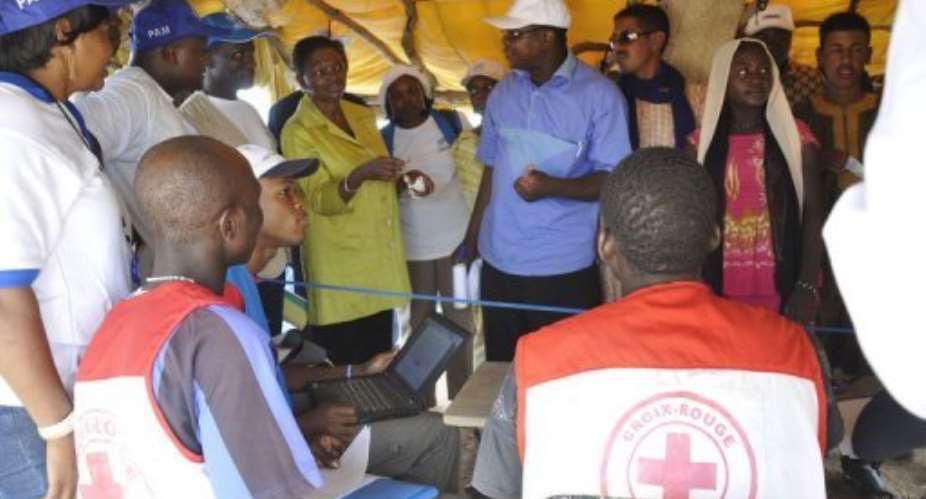DAKAR (AFP) - UN aid chief Valerie Amos said Thursday that a humanitarian crisis arising from food shortages in the drought-stricken Sahel would remain critical in the next few months.
"The humanitarian situation is expected to remain critical at least until the main harvest this autumn," around September, said Amos.
The humanitarian chief met with President Macky Sall in Senegal and Blaise Compaore in Burkina Faso on a four-day trip to west Africa to examine the impact of the food crisis.
"We can do more to avoid the crisis from becoming a catastrophe in the region but to save more lives we need strong leadership ... and continued generosity from the regional and humanitarian community," she said.
Some 800,000 people in northern Senegal are going hungry this year, while 2.8 million in Burkina Faso "need urgent help", Amos said.
Burkina Faso also has 60,000 refugees from neighbouring Mali living in refugee camps which has compounded the food crisis.
Crops failed across eight countries after late and erratic rains in 2011, affecting 18 million people, and aid agencies have raised the spectre of a food crisis bigger than the one which left millions starving in 2010.
This is the third drought in the Sahel in a decade, and while the previous ones were felt mostly in Niger and parts of Chad, this year it has unfolded even in more developed countries such as Senegal.
"We know that drought will happen, we cannot avoid it so if it's going to happen how can we help communities to withstand the shock when that deep drought happens?" Amos told journalists in Dakar.
She said that to boost resilience, communities needed to be taught how to manage water more effectively and improve agricultural production.





 Minority will expose the beneficial owners of SML, recover funds paid to company...
Minority will expose the beneficial owners of SML, recover funds paid to company...
 Prof. Opoku-Agyemang has ‘decapitated’ the NPP’s strategies; don’t take them ser...
Prof. Opoku-Agyemang has ‘decapitated’ the NPP’s strategies; don’t take them ser...
 Abubakar Tahiru: Ghanaian environmental activist sets world record by hugging 1,...
Abubakar Tahiru: Ghanaian environmental activist sets world record by hugging 1,...
 Prof. Naana Opoku-Agyemang will serve you with dignity, courage, and integrity a...
Prof. Naana Opoku-Agyemang will serve you with dignity, courage, and integrity a...
 Rectify salary anomalies to reduce tension and possible strike action in public ...
Rectify salary anomalies to reduce tension and possible strike action in public ...
 Stop all projects and fix ‘dumsor’ — Professor Charles Marfo to Akufo-Addo
Stop all projects and fix ‘dumsor’ — Professor Charles Marfo to Akufo-Addo
 Blue and white painted schools will attract dirt shortly – Kofi Asare
Blue and white painted schools will attract dirt shortly – Kofi Asare
 I endorse cost-sharing for free SHS, we should prioritise to know who can pay - ...
I endorse cost-sharing for free SHS, we should prioritise to know who can pay - ...
 See the four arsonists who petrol-bombed Labone-based CMG
See the four arsonists who petrol-bombed Labone-based CMG
 Mahama coming back because Akufo-Addo has failed, he hasn't performed more than ...
Mahama coming back because Akufo-Addo has failed, he hasn't performed more than ...
